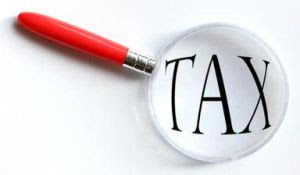WHAT IS INCOME TAX? Even though it is a levy paid on your earnings, some types of income are free of taxation. As a rule, taxes are due on things such as:
- Money earned from employment (your job) or from a trust.
- Profits made through self-employment (includes selling services online).
- Some earnings-related state benefits (see below).
- Rental income (*some exceptions apply for live-in landlords).
- Certain benefits in kind (BIK) you might get from your job.
- Most types of pensions (e.g. tax on savings interest, company and personal pensions, state pensions, and retirement annuities).
In most cases, you will not pay taxes on things such as:
- The first £1,000 of your ‘trading allowance’ (income from self-employment).
- Dividends gained from company shares below your dividends allowance.
- Some non-means tested state benefits.
- National Lottery wins and money from premium bonds.
- The first £1,000 of income earned from renting out a property (unless you use the Rent a Room Scheme)
- Rental income from a lodger in your property if it is below the rent a room limit.
- Income gained from tax-exempt accounts (e.g. National Savings Certificates and Individual Savings Accounts (ISAs)).
Note: This Income Tax overview and guide for beginners is also in Welsh language Treth Incwm (Cymraeg).
Tax Reliefs and Income Tax Allowances
Your Personal Allowance is an amount of income you can earn before paying taxes.
As a rule, most people get the current tax-free allowance in the United Kingdom. Qualifying for certain tax reliefs can also reduce taxation.

Methods of Paying Income Tax
PAYE Tax: Pay As You Earn
The majority of people in the United Kingdom pay their Income Tax through the PAYE system. Employers and pension providers use the Pay As You Earn method to deduct taxes.
They will take National Insurance contributions and Income Tax out of the money before paying your salary or your pension. The current tax codes inform them of the amount to deduct.
Paying Tax on State Benefits
HMRC tax codes take account of taxable state benefits. So, owing taxes on them (e.g. the State Pension) means it gets taken by automatic process from other income sources.
What if the State Pension is your only source of income? In this case, HMRC will inform you by letter if you owe them Income Tax. That means you may also need to fill in and send a Self Assessment tax return to them.
Self Assessment Tax Returns
Financial affairs can also get more complex (e.g. those with a high income or self-employed). In cases such as these, Income Tax and National Insurance may get paid through Self Assessment. That is why you must fill in a tax return every year.
Earning over your ‘trading allowance’ or having untaxed income more than £2,500 means you must also fill in a Self Assessment tax return.
You should contact the Income Tax: General Enquiries helpline if your income from renting a property is between £1,000 and £2,500.
Taxable and Tax-Free State Benefits
List of Taxable State Benefits
This list includes the most common state benefits that are liable for Income Tax:
- Bereavement Allowance (was the widow’s pension)
- Carer’s Allowance
- Employment and Support Allowance (contribution based)
- Incapacity Benefit (from the 29th week you get it)
- Jobseeker’s Allowance
- Pensions paid by the Industrial Death Benefit scheme
- The United Kingdom State Pension
- Widowed Parent’s Allowance
List of Tax-free State Benefits
This list includes the most common state benefits that are not liable for Income Tax:
- Attendance Allowance
- Child Tax Credit
- Child Benefit (income based)
- Christmas Bonus
- Disability Living Allowance
- Employment and Support Allowance (income related)
- Free TV licence for over-75s
- Guardian’s Allowance
- Housing Benefit
- Income Support (some exceptions apply e.g. having an involvement in a strike)
- Industrial Injuries Benefit
- Lump-sum bereavement payments
- Maternity Allowance
- Personal Independence Payment (PIP)
- Pension Credit
- Severe Disablement Allowance
- Universal Credit
- War Widow’s Pension
- Winter Fuel Payments
- Working Tax Credit
Should You be Paying Income Tax?
You can work out if you need to pay Income Tax by following these three basic steps:
- The first step is to add up all your taxable income. Remember to include any taxable state benefits you may be receiving.
- Calculate your personal tax-free allowances.
- Subtract your tax-free allowances from your taxable income to get a new figure.
Note: You will be a taxpayer is there is anything left after the calculation. Those who are not already paying tax should contact the Income Tax helpline. There is no need to pay tax if there is nothing left and you may be able to claim a tax refund.
Check You Pay the Correct Amount of Tax
In the United Kingdom a tax year runs from the 6th of April to the 5th of April in the following year. There are several ways to check if you are paying the right amount of Income Tax – including an online facility. By checking the current tax year you can:
- Check your Income Tax for the current year.
- Estimate your Income Tax for the current year.
- Check your Income Tax for previous years.
Note: You should contact HMRC if you are unable to use these services. A tax accountant can also help to check if you are paying the right taxes. The process differs when making Self Assessment corrections to tax returns.

